It was 1810 when hypnosis was first used. Medical professional have had interest in hypnosis for decades until it became one of the main treatment methods in mental health field. Most popular it became after Second World War I when hypnosis was effective to help soldiers cope with post traumatic disorders.
With the advance of pharmacology and the wide use of medication, hypnosis was quickly disregarded as an old and unnecessary method of emotional help. And that is very understandable. Here is why. Hypnotherapists don’t prescribe drugs nor do they support the use of antidepressants. Not to discredit the conventional medicine, of course, as pharmacology brought an immense relief to those in pain, but jumping into lifelong use of drugs for emotional struggles should be done after holistic approaches, where patients can use their inner resources to cope with illness.
Therapeutic hypnosis is not to be confused with stage hypnosis. Later aims at entertainment while healing hypnosis is for finding answers, coping with stress and reframing limiting beliefs.
So, why there are so many beliefs among people about hypnosis and what is false and what is true? Here are some of the fears people express about hypnosis.
1. I will be out of control and the hypnotherapist can make me do things I don’t want to
False. There is a scientific proof that hypnosis can only be induced from mutual rapport and trust between a patient and hypnotist. Also, a person will only accept suggestions that he believes are beneficial and healthy for him. For example, if in hypnosis you will be asked to sell your house and donate all the money to government, you will most likely open your eyes and either laugh through it or lose trust in the therapist.
2. I can go into deep trance and never wake up.
False. Hypnosis is a natural state of mind, more than that it is an increased state of inner awareness. Just like guided meditation used in yoga practice. If you fall asleep in hypnosis and none wakes you up, once you got a good rest you will wake up just like you wake up in the morning.
3. I will not remember what happened to me during the session.
False and True. There are different states of hypnotic induction, from light hypnosis (used in Rapid Transformational Therapy) to sleep hypnosis (where suggestions are giving while a patient sleeps). In light relaxed state, patients are fully aware of their internal state, they have better understanding of their feelings and emotions so they can better tap into their inner resources for healing. This is a purpose of hypnotherapy.
4. I am afraid as I have never been hypnotized.
False. Everyone has been hypnotized before. Have you never slept? Never drove to a destination and didn’t remember how you got there as your mind and your thoughts were wondering inward all the time? Have you never watched a movies that was so interesting you forgot everything that is happening around you? Have you never been caught in daydreaming? These are all natural forms of hypnosis, so if you have experienced that, you can be hypnotized.
5. I don’t need a hypnosis, I am seeing a therapist on a regular basis.
And that is amazing. Seeking help and support is the first step to recovery. The question here, how long are you seeing a therapist – 10 sessions, 2 years or maybe a decade? And you still don’t know why you get triggers, anxiety, addictions, fears and phobias, you can’t lose weight, you procrastinate or you just can’t find motivation in everyday life. It is a long process and very often after years of therapy, people seek alternative methods. While talk therapy is very helpful and in many cases essential, it is aimed to talk to your conscious mind, to your logic which is only 5% of your mind operation. 95% is controlled by subconscious and unconscious mind. Hypnosis opens a door for you to look into your subconscious mind and to find the root and the cause of your issues. Other ways to do that would be meditation (consistent and guided), auto-suggestions, daily affirmations that reprogram your mind for a better way of thinking.
So how does hypnosis work?
Hypnosis helps you relax and access your subconscious mind where you can find the answers to your most challenging questions. In that way you can look at your childhood and reframe limiting beliefs that don’t serve you anymore. You can find the answers and connect your presenting issue with childhood trauma and wounds from the past. You can also find deepest inner resources to cope with physical pain, to forgive and to let go of repressed emotions. It is the most liberating transformative power.
And since hypnosis is not a magic fix, as it requires participation from both sides it can accelerate the healing process and help you open up and use your emotional strengths.
Here are some interesting resources to read more about benefits of hypnosis:
6 Surprising Health Benefits Of Hypnosis
What is Rapid Transformational Therapy
P.S. I want you to know that you are amazing, no matter what path to self-healing you are on, you are significant and that’s what matters the most.
If you like self-therapy tips, follow me on Instagram where I share my knowledge about mind and body connection. You get the chance to experience profound inner changes if you follow my advices.

